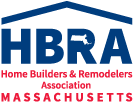The HBRAMA submitted its initial comments on the Department of Energy Resources (DOER) Proposal for Stretch Code Update and New Specialized Stretch Code released on February 8, 2022.
Chapter 8 of the Acts of 2021, An Act creating a next-generation roadmap for Massachusetts climate policy, mandates that the DOER develop a “Municipal Opt-in Specialized Stretch Energy Code” including a definition of “net zero.” The HBRAMA is concerned that the proposed code will adversely affect housing production and affordability. While the resulting operational costs and total cost of ownership for homes built under the proposed code project favorably, it is the potential for significant
up-front costs that, if not substantially mitigated, will provide a further barrier to homeownership.
The HBRAMA comments on the draft Stretch Code Update and New Specialized Stretch Code include:
- MassSave Incentives for 1-4 unit residences have been increased. The cost to achieve the required metrics for either Tier 1 or Tier 2, however, are likely to exceed the financial incentive and therefor will not actually incentivize as many projects as hoped. This is particularly true of the Tier 1 incentive which comes with a required HERS score of 35 or lower and ACH/50 of 1 or lower.
- The requirement of rooftop solar on residential low rise buildings utilizing fossil fuels will unnecessarily add costs that render such projects unfeasible as a majority of the homes built fall into this category and many of these projects are in areas with existing access to natural gas. In addition, many currently active residential developments and developments that are in the approval process that already have or have planned natural gas lines. If the solar requirement is imposed on such projects, which already have their lots defined and structures sited as approved by the municipality, builders may have to return to planning boards for changes to subdivision plans to accommodate the solar requirement due to orientation issues.
- A recommendation that the DOER establish an advisory committee of interested and qualified stakeholders, including representatives of the HBRAMA, to facilitate a dialogue with the department prior to it finalizing these codes.
- A recommendation that the DOER establish a 1-year concurrency period under which housing projects already underway or for which permits or approvals have been applied for but not yet granted, may be built under the base Energy Code or the Stretch Energy Code, if applicable.
A copy of the association’s comments can be found [here].

